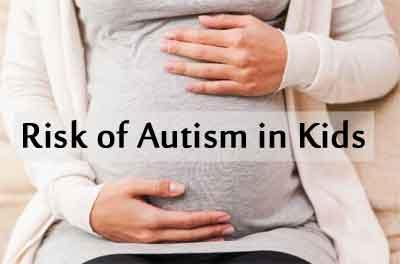- Home
- Editorial
- News
- Practice Guidelines
- Anesthesiology Guidelines
- Cancer Guidelines
- Cardiac Sciences Guidelines
- Critical Care Guidelines
- Dentistry Guidelines
- Dermatology Guidelines
- Diabetes and Endo Guidelines
- Diagnostics Guidelines
- ENT Guidelines
- Featured Practice Guidelines
- Gastroenterology Guidelines
- Geriatrics Guidelines
- Medicine Guidelines
- Nephrology Guidelines
- Neurosciences Guidelines
- Obs and Gynae Guidelines
- Ophthalmology Guidelines
- Orthopaedics Guidelines
- Paediatrics Guidelines
- Psychiatry Guidelines
- Pulmonology Guidelines
- Radiology Guidelines
- Surgery Guidelines
- Urology Guidelines
Women with PCOS at higher risk of having child with autism

- In Studies 1 and 2, an increase in the prevalence of PCOS in women with ASD (2.3% vs. 1.1%) and elevated rates of autism in women with PCOS (0.17% vs. 0.09%) was found.
- In Study 3, the researchers found that the odds of having a child with ASD were significantly increased, even after adjustment for maternal psychiatric diagnoses, obstetric complications, and maternal metabolic conditions.
- These studies provide further evidence that women with PCOS and their children have a greater risk of ASD.
The research team previously published work in 2015 which showed that before they are born, autistic children have elevated levels of 'sex steroid' hormones (including testosterone) which ' masculinize' the baby's body and brain. The discovery that prenatal sex steroid hormones are involved in the development of ASD is one possible explanation for why autism is diagnosed more often in boys.
The scientists wondered where these elevated sex steroid hormones were coming from, one possible source being the mother. If she had higher levels of testosterone than usual, as is the case in women with PCOS, then some of the hormone might cross the placenta during pregnancy, exposing her unborn baby to more of this hormone, and changing the baby's brain development.
The team presented their findings at the International Meeting for Autism Research in 2016, and their findings were replicated in a Swedish study in the same year, adding to the reliability of the result.
The team also conducted two other studies using the same data and found that autistic women were more likely to have PCOS, and women with PCOS were more likely to have autism themselves. This strongly suggests that these two conditions are linked, probably because they both share elevated sex steroid hormone levels.
"This is an important piece of new evidence for the theory that autism is not only caused by genes but also by prenatal sex steroid hormones such as testosterone," said Cherskov.
Professor Simon Baron-Cohen, Director of the Autism Research Centre, who supervised the research, said: "This new research is helping us understand the effects of testosterone on the developing fetal brain and on the child's later behavior and mind. These hormonal effects are not necessarily independent of genetic factors, as a mother or her baby may have higher levels of the hormone for genetic reasons, and testosterone can affect how genes function."
"Our findings demonstrate an association between PCOS and autism, which raises the question of whether early treatments or surveillance might be considered for one condition given the presence of the other. Metabolic conditions associated with PCOS can be reversed if caught early, and the social deficits in autism can be reduced with early psychological intervention programmes." concluded the authors.

Disclaimer: This site is primarily intended for healthcare professionals. Any content/information on this website does not replace the advice of medical and/or health professionals and should not be construed as medical/diagnostic advice/endorsement or prescription. Use of this site is subject to our terms of use, privacy policy, advertisement policy. © 2020 Minerva Medical Treatment Pvt Ltd